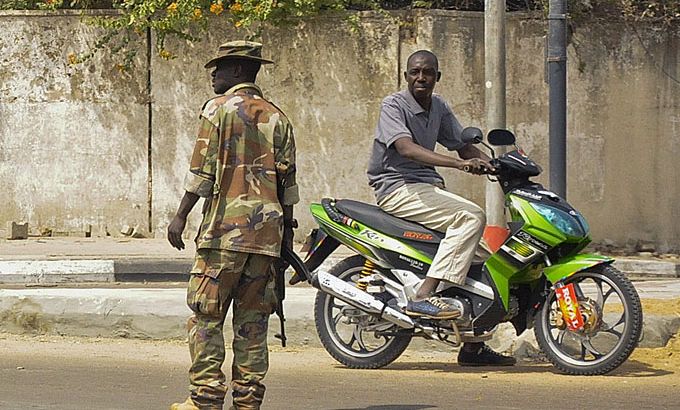
How should Nigeria tackle Boko Haram?
As the group intensifies its attacks, we ask what tactics the government should adopt to combat them.
Goodluck Jonathan, the Nigerian president, has fired his defence minister and national security adviser, saying the government needs new tactics to fight the armed group Boko Haram.
|
“Overall we’ve had the police reacting and not taking the proactive stand …. We are either not gathering intelligence the way we ought to or we are not making effective use of the intelligence we are gathering.“ – Chinedu Nwagu, of the Cleen foundation |
He said: “We think some new persons have to come in to change tactics in our fight against terrorism …. It’s not that they were not working but just that we need to change tactics.”
Jonathan went on to say: “Boko Haram has no face and the government will not dialogue with faceless people. They must come out and tell us why they are doing what they are doing.”
The call for a new strategy comes after armed men freed 40 prisoners in the northeastern city of Damaturu, where a curfew has been imposed.
About 500 people have already been killed in attacks this year. And, despite several military crackdowns and a state of emergency, Boko Haram appears to be intensifying its campaign of violence.
On Christmas Day coordinated attacks on churches left at least 35 people dead. And earlier this month, the group claimed responsibility for further attacks on churches. There were reprisals and days of violent clashes in which at least 106 people were killed.
Last week, attacks on churches killed at least 16 people.
|
“The international community has a number of interests in [Nigeria] … [including] the purported international connections that the Boko Haram movement has with al-Qaeda in the Islamic Maghreb and further east in Somalia.” – Darren Kew, an associate professor at the University of Massachusetts |
Boko Haram wants sharia – or Islamic law – to be adopted in Nigeria. But it is already in place in much of the country’s north. Since the passing of legislation in 1999, 12 states have adopted sharia.
But more than 10 years later, some say this has had no positive impact in a region still battling corruption and poverty.
Inside Story asks: What new tactics should the Nigerian government adopt to deal with Boko Haram? Is a crackdown on the group the only solution or is dialogue still an option?
Joining presenter Veronica Pedrosa to discuss this are guests: Chinedu Nwagu, the manager for Accountability and Justice at Cleen foundation, a Nigerian NGO that has been working with the Nigerian police on reforming its force; Darren Kew, an associate professor at the University of Massachusetts Boston, and author of an upcoming book called Democracy, Conflict Resolution and Civil Society in Nigeria; and Musa Aliyu, an associate lecturer of history, politics, media and communications at Liverpool Hope University.
|
“Since 1980 we’ve had crises like these and after each one we’ve had commissions set up, coming out with White Papers, none of which have so far been implemented. [Jonathan] should go back to those papers and implement some of the recommendations.” Musa Aliyu, an associate professor at Liverpool Hope University |
WHO ARE BOKO HARAM:
The name literally means ‘Western education is a sin’. The radical armed group based in Nigeria rejects Western culture and political models. Its stated goal is to wipe out any Western influence in northern Nigeria and to create an Islamic state there. Though recent attacks involved bombings, the group’s trademark has been to use gunmen on motorcycles, to kill police, politicians and critics.